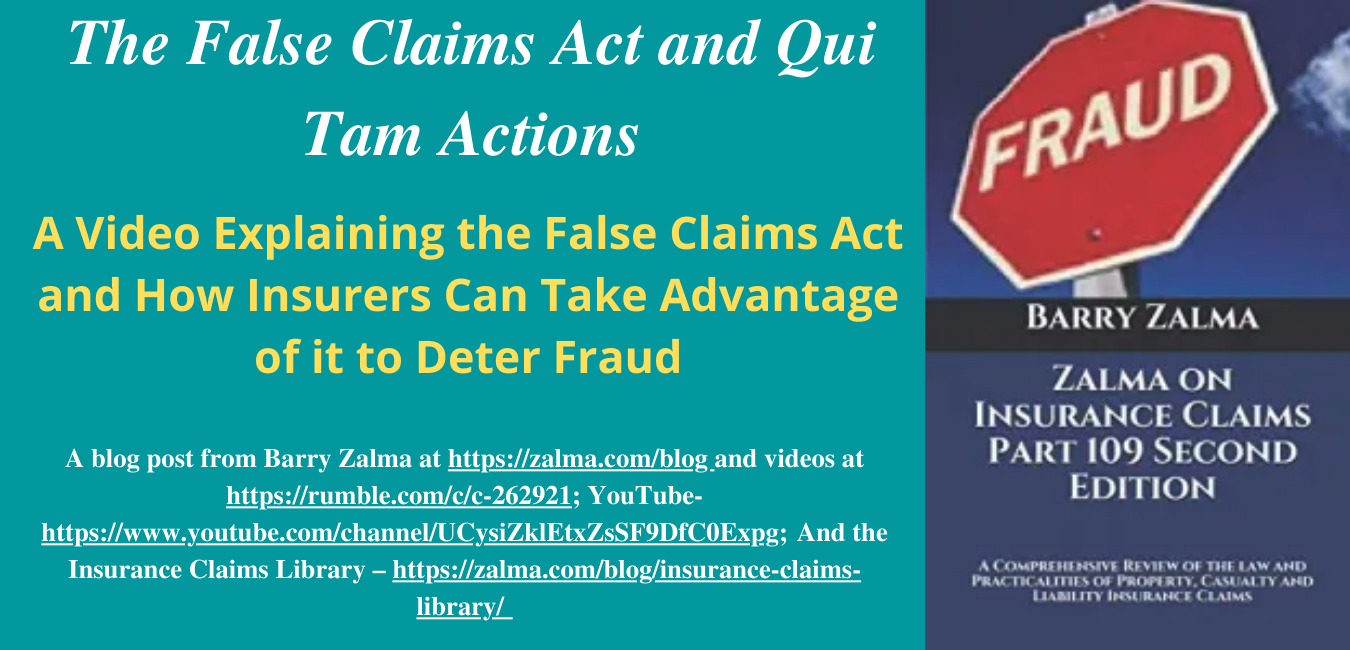-
News Feed
- EXPLORE
-
Pages
-
Groups
-
Events
-
Blogs
-
Marketplace
-
Offers
-
Jobs
-
Developers
How to be a Whistleblower on Insurance Fraud

A Video On How an Individual Can Help the Government Defeat Fraud
Read the full article at https://www.linkedin.com/pulse/how-whistleblower-barry-zalma-esq-cfe and see the full video at https://youtu.be/tSLAh4103AA and at https://www.rumble.com/zalma and at https://zalma.com/blog plus more than 3900 posts.
If an individual has knowledge that a false claim was submitted to the government, that person can elect to become a whistleblower and retain an attorney who will draft a complaint and a disclosure statement. The whistleblower will file these two documents under seal in US district court and send copies to the Department of Justice.
After the complaint is filed, the Justice Department has 60 days to investigate the allegations and determine whether it will join the lawsuit. If the Justice Department does join the lawsuit, it has the primary responsibility for prosecuting the case and can limit the whistleblower’s participation in the action. If the qui tam action is successful, the whistleblower’s share of the recovery will range from 15 to 30% depending on the extent of the individual’s investigation. The judge normally determines the percentage.
If the department decides not to participate, the whistleblower has the right to continue to pursue the claim on behalf of the US and will receive a higher portion of any recovery received.
The False Claims Act states that any person can file a qui tam action as long as they have direct and independent knowledge of the fraud and this knowledge was not obtained from a “public disclosure.” The definition of “person” includes not only individuals, but also businesses and state or local government entities. The most common plaintiffs in qui tam actions are employees of government contractors, healthcare organizations, and local, state, or federal government.
ZALMA OPINION
Police agencies and prosecutors seem loathe to file insurance fraud cases. It is important, therefore, that insurers, agents, brokers and claims handlers recognize the opportunities provided by the false claims act that can either force the prosecutor to join in or take the profit out of the fraud business.
We are 100% funded for October.
Thanks to everyone who helped out. 🥰
Xephula monthly operating expenses for 2024 - Server: $143/month - Backup Software: $6/month - Object Storage: $6/month - SMTP Service: $10/month - Stripe Processing Fees: ~$10/month - Total: $175/month
- Art
- Causes
- Crafts
- Crime
- Dance
- Drinks
- Film
- Finance
- Fitness
- Food
- Games
- Gardening
- Health
- Home
- Literature
- Music
- Networking
- Paranormal
- Other
- Politics
- History
- News
- Party
- Science
- Religion
- Shopping
- Sports
- SyFy
- Politically Incorrect
- Philosophy
- Theater
- Technology
- Wellness



